Plastic Grocery Bag Fee Should Take Effect
I am rebutting Todd Harding's article on the repeal of the measure that would have put a $.05 fee on plastic grocery bags in Fort Collins.
Because, on this issue, Todd is being a butthead. Look at him(above), gloating with his plastic bag. "Todd, may I borrow that bag so I may vomit in it, please? Ralph! Thank you."
Here's the bottom line--Todd, and I, and our parents, and everyone born between about 1944 and now have enjoyed a prosperity that has never been experienced on this Earth.
Not only are food, clothing and shelter taken care of; safety, transportation, recreation, education, and jobs are all readily available. Many of us have never missed a meal. Some of us have moved way past what we need and are focused on what we want.
This prosperity is an amazing thing. However, it has its problems.
Manufacturing and technology have been able to fulfill our every desire, large and small, and rich and poor alike have enjoyed an ease of life that caused us to begin to take things for granted.
Big companies harnessed the power of chemistry and mass production to make more plastic shit than we could ever really use. It cost them almost nothing to create junk schwag with corporate logos on it, and plastics have flooded the Earth.
Likewise, as a way to attract customers, save money and keep up with the competition, grocery store chains were able to offer as many free bags as we could carry. The most popular kind became the plastic bags, because they are durable and have handy little handles, unlike the paper ones that are pretty much like picking up a cardboard box.
We're enjoying a time when we can do almost anything with cheap, disposable goods. Just because we can, doesn't mean we should.
At this point, we have identified plastic grocery bags as a source of litter that is a nuisance at best, and life threatening at worst (ocean refuse is the dangerous culprit).
The website reuseit.com cites these points about plastic bags.
• A single plastic bag can take up to 1,000 years to degrade.
• More than 3.5 million tons of plastic bags, sacks and wraps were discarded in 2008.
• Only 1 in 200 plastic bags in the UK are recycled (BBC).
• The U.S. goes through 100 billion single-use plastic bags. This costs retailers about $4 billion a year.
• Plastic bags are the second-most common type of ocean refuse, after cigarette butts (2008)
• Plastic bags remain toxic even after they break down.
• Every square mile of ocean has about 46,000 pieces of plastic floating in it.
Further information comes from cleanair.org, with their source cited at the bottom.
Every year, Americans use approximately 102.1 billion plastic bags, creating tons of landfill waste.Plastic bags do not biodegrade. Light breaks them down into smaller and smaller particles that contaminate the soil and water and are expensive and difficult to remove.
The good thing is the plastic bag issue, like many contemporary problems, can be easily remedied.
A tax on grocery bags would cause immediate and lasting change.
- Right away, shoppers and baggers would become much more conscious of how many bags they are taking.
When we aren't focused on it and the baggers aren't either, we leave with more bags than we need. If the amount we take is efficient it could halve the amount of bags going out in no time.
And really, how many bags do you take from an average shopping trip. 10? 20? That's $.50 or one dollar. For a very small amount of money we could make a very big change.
Soon, people would realize all the ways that they can avoid this little tax.
- Buy reusable grocery bags
- Take less by focusing on fitting more into existing bags. Then, reuse the old plastic bags. 10 of them can easily be carried in a pocket.
- Just put the items in the cart, put them in the car, then use a box or bin from home to move them where they need to go.
The point is that there are people out there who come from the entitlement generation, because we've barely been denied anything. We don't need to feel shame about it. But digging our heels in and resisting change because things have always been this way is not the direction for us.
Rather, we show gratitude when we do little things, like saying, "I care enough about our oceans, water supply, quality of life and wildlife to make a small change. A very small change."
I celebrate our prosperity, and truly want it to continue. It will feel even better when we know we are paying it the gratitude it deserves.
The plastic bag issue is the perfect example of "Just because we can, doesn't mean we should."
What do you think?
More From Retro 102.5





